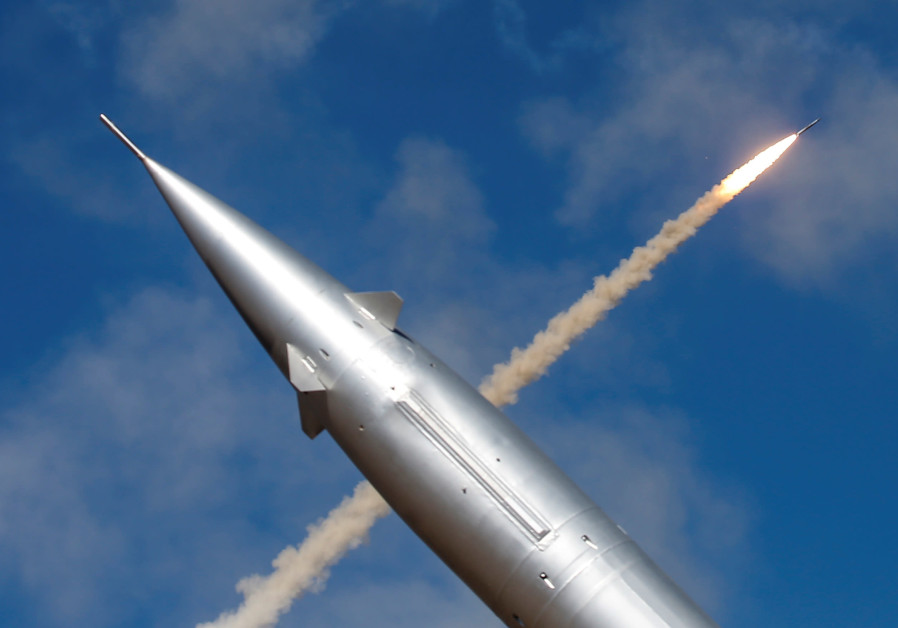Russia likely to deliver S-300 missiles to Syria

A missile from the S-300 anti-aircraft system during the International Army Games in Russia. (photo credit: REUTERS/MAXIM SHEMETOV)
Russia plans to deliver an anti-aircraft missile system, known as the S-300, to Syria in the near future, Russian Defense Ministry’s Colonel General Sergei Rudskoi told reporters on Wednesday.
“Russian experts will continue to train Syrian military servicemen, particularly teaching them to use the new missile defense systems that are planned to be delivered to Syria in the near future,” he said, according to the Russian news agency TASS.
Russia’s sale and pending delivery of these weapons to the Syrian government has been a source of tension between Moscow and Jerusalem. Israel fears the S-300 would hamper its ability to attack military sites in Syria that are dangerous to the Jewish State and would therefore allow Iran to strengthen its military foothold in that country.
“This is by far the most advanced weapons system in air defense in Syrian hands so far,” said Brig. Gen. (res.) Assaf Orion, “so theoretically it is an entrenchment to the apparent freedom of action that the Israeli air force enjoys over Syria’s sky.”
“I can’t rule out striking them [the S-300 systems] at some point in time… so you can’t say it’s totally out of the Israeli option book, and a lot depends on the strategic level,” he said.
Orion is the former head of the IDF’s Strategic Division and senior fellow at the Institute for National Security Studies, for his insight. He spoke to reporters with the help of the Israel Project.
Russia’s ambassador to Israel on Wednesday played down tensions between the countries over Israeli attacks in Syria, saying they were not the reason for Moscow’s proposed supply of an advanced air defense system to Damascus.
“If anyone shoots at our planes, we will destroy them,” Israeli Defense Minister Avigdor Liberman said on Tuesday.
Since intervening in Syria’s civil war on behalf of President Bashar Assad in 2015, Russia has generally turned a blind eye to Israeli air strikes there against suspected arms transfers and deployments by his Iranian and Hezbollah allies.
But Russia was quick to blame Israel for an April 9 raid that killed seven Iranian military personnel, and which came as the United States, France and Britain faced off with Damascus and Moscow over an alleged gas attack on a Syrian rebel area.
Asked whether Russia would now curtail Israel’s freedom of action in Syria, Ambassador Alexander Shein sounded circumspect.
“It is of course in our interest that these actions not take place, because they worsen the Syria situation,” he told Israeli news site Ynet. But he added: “We of course understand the reasons for Israel deciding to carry out actions of this kind, and would of course also prefer that these reasons not exist.”
The Israelis say their strikes aim to prevent Iran’s pro-Assad garrison from entrenching in Syria and linking with Hezbollah in Lebanon to form a broad front against them.
Shein said the idea of the S-300 delivery – on which Russia has yet to decide – was a result of the punitive April 14 missile strikes by US, British and French forces on Syria.





Comments are closed.